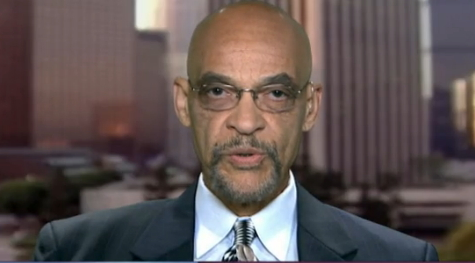Earl Ofari Hutchinson
The evidence that Trump did an unethical, illegal and constitutionally prohibited act to use a foreign power to sabotage a political rival is virtually undeniable. The two articles of impeachment against him: abuse of power and abuse of congress are squarely within the guideline of what are impeachable offenses.
GOP senators, and House reps, have railed long and loud against the impeachment process. But they have not denied the right and authority of the House to impeach Trump. Senate Majority Leader Mitch McConnell made clear that when impeachment lands on the Senate’s table, he’ll quickly scuttle it. But McConnell did not say that the House couldn’t impeach.
So, you’ve got legality, a process that is constitutionally mandated, and majority public support for impeachment. It means almost nothing. The Senate won’t convict. And it never will. In small part, because the GOP must protect Trump at all costs. But in greater part because convicting a sitting president poses far too many dangers to the democratic process.
There’s history here. The GOP had absolute control of the Senate when Clinton was impeached in 1998. It did not convict. Ten GOP senators flatly said they wouldn’t vote for conviction. True, Clinton was a popular president, and some of the senators came from states that Clinton won. They took the inevitable glance over their shoulders at possible voter backlash for a conviction vote. However, the senators also made clear that the offenses simply didn’t warrant ousting a sitting president from office.
In fact, almost nothing would. The Founding Fathers were deeply wary of ever having to do just that. They warned when wrangling over putting a mechanism in the Constitution for getting rid of a sitting president who abused the office of the extreme danger of using impeachment and conviction as a malicious weapon to cajole, threaten, intimidate, and ultimately remove a president of the opposing party they didn’t like, want, or had a vendetta against. If that happened, this would hopelessly taint the established process of getting rid of a bad or bad behaving chief executive; namely at the ballot box. Removal by anything other than an election, was extreme, and would be widely viewed as extra-legal.
This is pretty much what McConnell, GOP senators and Trump have screamed to their top of their lungs. That impeachment is a political hit job by the Democrats on a President that they couldn’t beat at the polls in 2016 and can’t beat in 2020. They tirelessly finger-point that the Democrats beat the war drums for impeaching Trump even before he set one toe in the White House. Polls show that a lot of voters buy the GOP line that impeachment is nothing but a sore grapes loser, petty, vindictive vendetta, by Democrats against Trump.
A conviction of Trump would also open wide the gates for going after any future sitting president that the opposing party deems to be a bad president. Since there is no allegation that Trump could be hauled into a court and charged with an actual crime in his wheel and deal with the Ukraine over Biden, that makes the charges and the reason for dumping him even more vague and hazy; and thus seemingly a political hatchet job by the Democrats. A future Democratic president could just easily find his or herself saber rattled with impeachment with the catch all charges of abuse of power and Congress. Conviction sets that dubious precedent.
There’s no assurance that if the script were flipped and the Democrats controlled the Senate that the majority of Democratic senators would ultimately vote to convict Trump. Sure, they’d do what McConnell is trying mightily to avoid and that’s conduct a real trial, with real witnesses, real testimony, and a full release and airing of any and all documents pertaining to Trump’s actions. However, the betting odds are that the outcome would be the same: no conviction. The reasons are the same. The risks conviction bring of jading the political process, stirring voter rage and cynicism, deepening political polarization, and the ease of waging political vendettas using threats of impeachment and conviction.
Trump understood the high stakes game of impeachment and possible conviction. He moved fast to make sure that didn’t happen by forbidding any White House staffer to testify before the two-House impeachment inquiry committees. He did the same by refusing all committee requests to turn over related documents. He got away with that by invoking executive privilege. He has the courts behind him on this. They have never upended the right of presidents to invoke executive privilege if they could make the case that release of documents would imperil national security or impede ongoing investigations criminal or otherwise.
McConnell and the Senate have one more ploy to torpedo conviction: time. There is no set timetable when the Senate must start calling witnesses, taking testimony, and combing through the documents on impeachment. This spells one thing, Trump will not be convicted, Clinton was not convicted, and given the history of and deliberate obstacles to conviction, no other sitting president would be either.
Earl Ofari Hutchinson is an author and political analyst. He is the author of The Impeachment of President Trump? (Amazon Kindle)
He is a weekly co-host of the Al Sharpton Show on Radio One. He is the host of the weekly Hutchinson Report on KPFK 90.7 FM Los Angeles and the Pacifica Network.


Im taking a interest on mike Bloomberg